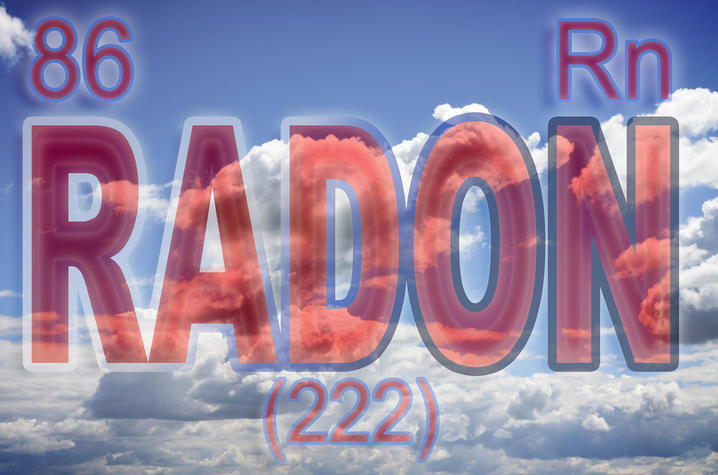UK Team Seeks Geologists' Contributions to Radon Research

LEXINGTON, Ky. (July 21, 2017) -- In some cases, a Kentucky home sweet home is in reality a Kentucky home sick home.
The culprit may be radon, an invisible, odorless radioactive gas released in rock, soil and water. Breathing radon can increase the risk of lung cancer, especially when also breathing tobacco smoke. When structures are built on such radon-bearing rock or soil, radon gas can build to dangerous levels. This build-up is possible regardless of the age of the structure, regardless if it is drafty or sealed, with or without a basement.
Kentucky Geological Survey geologist Bethany Overfield and UK College of Nursing Professor and Director of BREATHE, Ellen Hahn are collaborating on projects that use geology as a predictive tool to assess radon potential in Kentucky; the objective is to reduce environmental risks for lung cancer.
Overfield, Hahn, KGS Director Bill Haneberg and USGS Associate Director for Environmental Health Geoff Plumlee are organizing a technical session at the 2017 American Geophysical Union fall meeting this December to discuss the “Origin, Transport, and Accumulation of Geogenic Carcinogens.”
The session will cover a range of topics focusing on the intersection between human health and earth sciences. For details and a description of the AGU session, visit this site.
The team is searching for researchers who might be investigating geologic factors such as bedrock geology, surficial geology and geologic processes and their impact on carcinogen origin, transport and accumulation. If interested, an abstract must be uploaded at the meeting’s submission website by Wednesday, Aug. 2.




